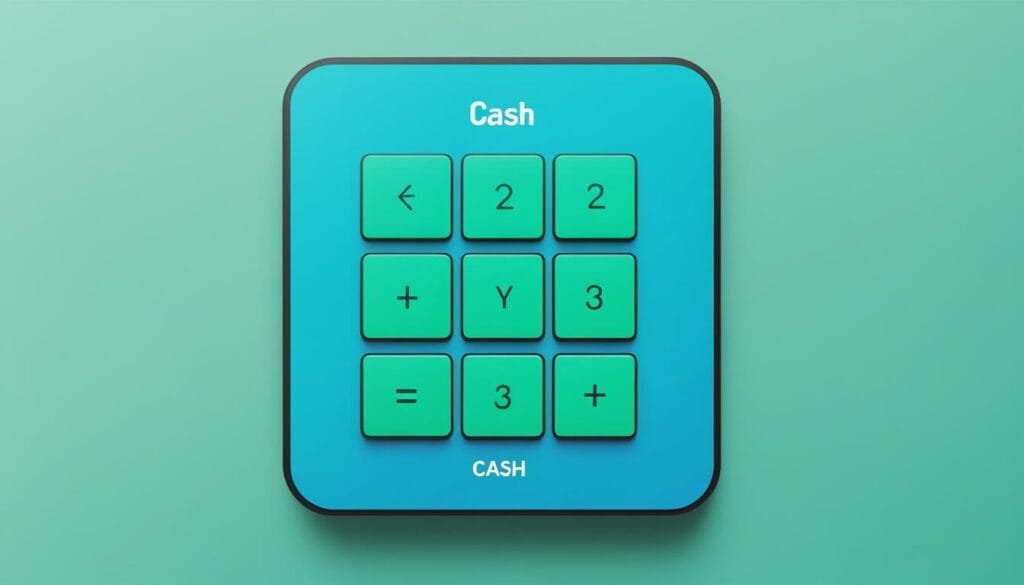Having a financial accountability partner is essential for maintaining financial discipline and achieving your money goals. A financial accountability partner is someone who supports you in staying on track with your financial goals, provides guidance, and offers encouragement.
With the help of an accountability partner, you can improve your financial management skills, make more informed decisions, and stay motivated on your personal finance journey. In this article, we will guide you on how to find a suitable financial accountability partner and explore the benefits it can bring to your financial success.
Key Takeaways:
- Having a financial accountability partner can improve your financial discipline.
- An accountability partner supports you in staying on track with your financial goals.
- Choose a partner who shares similar financial goals and management skills.
- An accountability partner provides motivation, guidance, and advice.
- Regular communication and trust are crucial in building a successful partnership.
What is an Accountability Partner?
An accountability partner is someone who agrees to hold you accountable for your financial goals. They provide support, guidance, and accountability as you work towards managing your finances effectively. This partner can be a friend, family member, or even a professional financial accountability coach. Having someone to keep you accountable can significantly increase your chances of achieving long-term financial success.
It’s important to have someone who understands your personal finance accountability and can provide the necessary guidance and encouragement. A financial accountability coach, in particular, can offer expertise and help you develop a solid financial plan.
“Having an accountability partner for your finances is like having a personal trainer for your money. They help you stay on track, motivate you to make the necessary changes, and offer valuable insights to enhance your financial journey.” – Financial expert, Jane Miller
By having an accountability partner, you have someone who keeps you focused on your financial goals. They can provide the necessary support and friendly reminders to stay on track. Additionally, having someone to discuss your progress with can give you a fresh perspective and help you make better financial decisions.
With an accountability partner, you have someone who understands the challenges and triumphs of managing money. They are there to celebrate your wins and provide motivation during difficult times. With their guidance, you can develop healthy financial habits and build a solid foundation for your future.
Choosing the Right Accountability Partner
When it comes to selecting an accountability partner, it’s crucial to find someone who shares similar goals and financial management skills. By choosing a partner who is frugal and wise with their financial decisions, you ensure that you are both on the same page when it comes to money accountability. Regular check-ins and planning budget-friendly outings together are essential for maintaining financial accountability.
Trust is another vital factor to consider when selecting an accountability partner. You need someone you can trust, who will support you without judgment, and who genuinely wants to see you succeed in your financial journey.
Key Factors to Consider:
- Shared financial goals
- Similar financial management skills
- Frugal and smart with their financial decisions
- Regular check-ins to maintain accountability
- Inexpensive outings to foster financial accountability
- Trust and non-judgmental support
Remember, an accountability partner is someone who will keep you on track and help you stay committed to your financial goals. Their role is to provide guidance, encouragement, and support throughout your financial management journey.
Benefits of Having an Accountability Partner
Harnessing the power of an accountability partner can bring numerous advantages to your financial journey. Let’s explore the key benefits:
- Motivation and Encouragement: Your accountability partner will be your cheerleader, motivating and encouraging you to stay committed to your financial goals. They will provide the much-needed support during challenging times, helping you push through obstacles and stay focused on your long-term objectives.
- Staying on Track: With a financial mentor by your side, you’ll be less likely to deviate from your financial goals. They will remind you of your intentions and keep you accountable, preventing impulsive spending or oversights that can hinder your progress.
- Valuable Insights and Advice: Your partner can serve as a valuable sounding board for your financial decisions. They can offer fresh perspectives and share their own experiences and expertise, guiding you towards optimized financial strategies and helping you make informed choices.
“Having accountability partners in your financial journey is like having a personal board of directors, keeping you focused and offering guidance.” – Financial Expert
An accountability partner can make a significant difference in your path to financial success. They provide motivation, keep you on track, and offer invaluable insights and advice. Now, let’s see how to approach potential accountability partners and start building a strong financial support system.
How to Approach Potential Accountability Partners
If you are looking for a financial accountability partner but are unsure how to approach potential candidates, here are some steps to guide you through the process:
- Clarify your goals: Start by explaining your desire to be more mindful about spending and saving money. Clearly articulate your financial goals and the areas in which you need support.
- Choose someone you trust: It is crucial to find someone you trust and feel comfortable discussing your financial struggles and goals with. Look for a person who has a good understanding of personal finance and shares similar values.
- Communicate your expectations: Ask if the potential partner would be willing to check in with you regularly and provide feedback on your progress. Make it clear that you expect honesty, transparency, and constructive criticism.
- Establish mutual accountability: Discuss ways in which you can hold each other accountable. This could include setting specific financial targets, reviewing each other’s budgets, or sharing money-saving tips and resources.
- Consider professional help: If you are unable to find a suitable accountability partner among friends or family, consider working with a professional financial goals coach. They can provide expertise and guidance tailored to your specific needs.
Remember, the success of your accountability partnership depends on mutual trust, clear communication, and a shared commitment to financial growth. By following these steps, you can find a suitable accountability partner who will support you in achieving your financial goals.

Building Trust and Accountability
Trust is the foundation of any successful accountability partnership. When it comes to finance accountability, trust plays a crucial role in establishing a solid and productive relationship with your financial partner. By building trust, you can create a supportive environment that fosters growth and helps you achieve your financial goals.
To build trust in your accountability partnership, it is important to:
- Establish open and honest communication: Transparency is key when working with a financial partner. By openly discussing your financial goals, challenges, and progress, you can ensure that both parties are on the same page.
- Share successes and failures: Celebrate wins together, but also be open about your failures. Sharing both successes and failures helps create a culture of learning and growth, where you can learn from each other’s experiences.
- Set clear expectations and goals: Discuss and define your financial goals and expectations from the partnership. Clear guidelines ensure that both you and your financial partner are aligned and working towards the same objectives.
- Regularly evaluate and discuss progress: Schedule regular check-ins to review your progress. Discuss challenges, offer support, and provide constructive feedback to help each other stay accountable.
By fostering trust and accountability in your financial partnership, you can create a space where both parties feel comfortable sharing their financial concerns, aspirations, and strategies. It is through trust that you can build a resilient and successful financial journey.
The Leadership Accountability Model™
The Leadership Accountability Model™ provides a comprehensive framework for fostering genuine accountability and driving high performance in the realm of financial services. By implementing this model, you can establish a culture of financial accountability and propel growth in your financial journey.
- Establishing Unity Around Your Financial Strategy: Ensure that all stakeholders are aligned with and committed to your financial strategy. This involves communicating the goals, objectives, and values of your financial plan to create a shared vision.
- Defining Performance Expectations and Partner Roles and Goals: Clearly articulate the performance expectations for each partner involved in the financial accountability process. Define the roles, responsibilities, and goals for each partner, ensuring that everyone understands their specific contributions towards achieving financial success.
- Monitoring Performance: Regularly monitor the performance of each partner in the financial accountability partnership. This includes tracking key performance indicators (KPIs), reviewing financial reports, and analyzing progress towards predetermined goals.
- Evaluating and Discussing Partner Performance: Conduct regular evaluations and discussions to assess partner performance. Provide constructive feedback and guidance to help partners improve their financial decision-making and achieve optimal results.
- Rewarding Partner Performance: Recognize and reward partner performance to incentivize commitment and drive continuous improvement. This can be in the form of financial incentives, acknowledgment, or other meaningful rewards that align with your partner’s motivations.
By following the Leadership Accountability Model™, you can cultivate an environment of trust, collaboration, and responsibility, empowering partners to take ownership of their financial decisions. This model lays the foundation for a successful financial accountability partnership and elevates the collective performance towards financial goals.

Importance of Trust in an Accountability Culture
Trust is a fundamental element in creating an accountability culture within your financial journey. When team members trust and rely on each other, they can confidently work towards their financial goals. Trust creates an environment that allows for open communication, increased collaboration, and a sense of shared responsibility.
By fostering trust in your accountability partnership, you can create a culture that promotes financial success and personal growth. Trust enables you to:
- Share sensitive financial information and discuss challenges openly
- Receive honest feedback and constructive criticism
- Hold each other accountable for staying on track with financial goals
- Collaborate on financial decisions and strategies
Without trust, an accountability partnership lacks the foundation it needs to thrive. Trust allows both parties to feel safe and confident in sharing their financial concerns, progress, and setbacks, enhancing the effectiveness of the partnership.
“Trust is like a mirror, you can fix it if it’s broken, but you can still see the crack in that motherfucker’s reflection.” – Lady Gaga
Building trust within an accountability culture requires effort and consistency. Here are a few strategies that can help:
- Establish Clear Boundaries: Define expectations, roles, and responsibilities within the partnership. Clearly communicate what actions build trust and what behaviors erode trust.
- Engage in Active Listening: Show genuine interest in your partner’s perspectives and concerns. Listen actively and respond empathetically, creating a safe space for open dialogue.
- Be Reliable: Consistently follow through on commitments and promises. Demonstrate reliability and consistency in meeting financial goals and deadlines.
- Show Vulnerability: Be willing to share personal financial challenges and mistakes. By being vulnerable, you encourage your partner to do the same, fostering a deeper connection and understanding.
Trust within an accountability culture allows for a dynamic partnership where both parties can support each other through the ups and downs of their financial journey. It facilitates growth, learning, and the achievement of long-term financial success.
| Benefits of Trust in an Accountability Culture |
|---|
| Increased transparency and communication |
| Enhanced collaboration and brainstorming |
| Greater commitment to shared financial goals |
| Stronger problem-solving and decision-making abilities |
| Improved accountability and follow-through |
Conclusion
A financial accountability partner plays a pivotal role in helping individuals achieve their financial goals. By selecting the right partner, fostering trust, and embracing an accountability culture, you can enhance your financial discipline and work towards long-term financial success.
Regular communication and unwavering support are key in maintaining a successful partnership. Celebrate each other’s accomplishments and learn from any setbacks encountered along the way. With the guidance and encouragement of an accountability partner, you can make significant strides in your personal finance journey.
Remember, financial accountability is not only about staying on track with your goals, but also about continuously improving your financial decision-making process. Embrace the opportunity to gain valuable insights and grow as you navigate your way towards financial stability and a secure future.
FAQ
What is a financial accountability partner?
A financial accountability partner is someone who supports you in staying on track with your financial goals and can provide guidance and encouragement throughout your personal finance journey.
How do I choose the right accountability partner?
When selecting an accountability partner, it is important to choose someone who shares similar goals and financial management skills. Look for someone who wants to be frugal and smart with their financial decisions, and whom you trust and feel comfortable discussing your financial struggles and goals with.
What are the benefits of having an accountability partner?
Having an accountability partner can provide motivation and encouragement, keep you on track when you are tempted to stray from your financial goals, and provide valuable insights and advice. They can serve as a sounding board for your financial decisions and help you stay focused on your long-term goals.
How should I approach potential accountability partners?
Start by explaining your desire to be more mindful about spending and saving money. Ask if they would be willing to check in with you regularly and provide feedback on your progress. It is important to choose someone you trust and who will support you without judgment.
How can I build trust and accountability in my partnership?
To build trust, establish open and honest communication, share successes and failures, and encourage each other. Set clear expectations and goals together, and regularly evaluate and discuss your progress.
What is The Leadership Accountability Model™?
The Leadership Accountability Model™ outlines the elements necessary for fostering genuine accountability and high performance. These elements include establishing unity around your financial strategy, defining performance expectations and partner roles and goals, monitoring performance, evaluating and discussing partner performance, and rewarding partner performance.
How important is trust in an accountability culture?
Trust is crucial in creating an accountability culture within your financial journey. When team members trust and rely on each other, they can confidently work towards their financial goals, fostering open communication, increased collaboration, and a sense of shared responsibility.
How Can Having a Financial Accountability Partner Help Boost Finances?
Source Links
- https://medium.com/@hello_54610/how-an-accountability-buddy-can-transform-your-finances-331f1dd996a7
- https://www.usbank.com/financialiq/manage-your-household/personal-finance/Working-with-accountability-partner-help-reach-goals.html
- https://assets.ctfassets.net/rb9cdnjh59cm/5yUvm0rZt9jbNmvwnvp3U2/8d175198d93329ba58590ff60d275562/partner-accountability-guide.pdf

